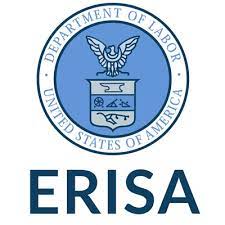 As we have previously reported, legislation seeking to impose mandates or otherwise change the benefit structure of self-funded employer-sponsored health benefit plans (“ERISA” plans) threatens to undermine those plans by subjecting them to state-by-state regulation. To date, the United States Supreme Court has repeatedly ruled that such efforts are pre-empted by federal law. Despite this long line of authority, proponents of imposing state regulation on ERISA plans are looking to two recent cases for evidence that the federal courts are loosening the standards for states seeking to pierce ERISA pre-emption. A closer reading of these cases, however, reveals that they do nothing of the sort and that there is little to no indication that SCOTUS is ready to lift the pre-emption bar.
As we have previously reported, legislation seeking to impose mandates or otherwise change the benefit structure of self-funded employer-sponsored health benefit plans (“ERISA” plans) threatens to undermine those plans by subjecting them to state-by-state regulation. To date, the United States Supreme Court has repeatedly ruled that such efforts are pre-empted by federal law. Despite this long line of authority, proponents of imposing state regulation on ERISA plans are looking to two recent cases for evidence that the federal courts are loosening the standards for states seeking to pierce ERISA pre-emption. A closer reading of these cases, however, reveals that they do nothing of the sort and that there is little to no indication that SCOTUS is ready to lift the pre-emption bar.
Both of the cases involve the relationship between pharmacy benefit managers (PBMs) and retail pharmacies. The first, Rutledge v. Pharmaceutical Care Management Association, 141 S.Ct. 474 (2020), arose from a 2015 Arkansas statute that required pharmacy benefit managers (PBMs) to reimburse pharmacies at or above the pharmacies’ cost to obtain a covered drug from a wholesaler. This law required PBMs to update their lists specifying the maximum allowable cost (MAC) for each drug each time the wholesale price changed, establish an appeals process for pharmacies challenging the amount of reimbursement, and increase the reimbursement rate if a pharmacy could not obtain the drug at a lower price than the MAC list specified from its customary wholesaler. If a pharmacy could not get reimbursement from a PBM at the price of acquisition or above, the pharmacy could decline to sell the drug to a beneficiary of the plan. SCOTUS upheld the Arkansas statute over an ERISA pre-emption challenge by the Pharmaceutical Care Management Association (PCMA) on the basis that the statute merely established a floor for the cost of benefits that a plan may choose to provide, which may indirectly increase the cost of pharmacy benefits but does nothing to interfere with plan design or administration. The Court thus drew a clear line between legislation that deals with contracts between PBMs and in-network pharmacies and legislation that crosses the line into direct regulation of plan benefits or how the employer chooses to structure those benefits.
Last spring an Oklahoma federal district court reached a similar conclusion in Pharmaceutical Care Management Association v. Glen Mulready, in his official capacity as Insurance Commissioner of Oklahoma, and the Oklahoma Insurance Department (Case No. CIV-19-977-J; filed April 4, 2022). In 2019 the Oklahoma Legislature enacted the “Oklahoma’s Patient’s Right to Pharmacy Choice Act,” Okla. Stat. tit. 36, § 6958 et seq. Among other things, the statute regulates the relationship between a PBM and its network pharmacists, prohibits a PBM from restricting an individual’s choice of an in-network pharmacy, bars a PBM from requiring an individual to use an affiliated pharmacy, and requires a PBM to meet certain access standards. The district court held that none of these changes have a “connection with” an ERISA plan because they do not “interfere with plan design or administration.” Rather, the provisions “may alter the incentives and limit some of the options that an ERISA plan can use, [but] none of the provisions forces ERISA plans to make any specific choices.” PCMA has appealed the court’s decision to the 10thCircuit Court of Appeals. A number of states, including Texas, have joined in an amicus curiae brief defending the Oklahoma statute. As was the case in Rutledge, this Oklahoma statute deals solely with the contractual relationship between PBMs and in-network pharmacies.
These decisions neither break legal precedent nor herald a paradigm shift in the way SCOTUS evaluates ERISA pre-emption claims. While we are cognizant and appreciative of the Legislature’s desire to reduce health care costs, regulating ERISA plans will do far more harm than good. Not only would employers have to comply with 50 different state regulatory regimes mandating different plan benefits and administrative requirements, but they would be placed in a position in which employees in some states got “better” benefits than those in others. The disruption this would likely cause to an employer’s workforce is hard to predict, but the concern is real. While any Texas legislation in this arena will certainly be litigated to the bitter end, inviting such litigation will significantly detract from the legislative policies that have made the Texas economy the most dynamic and successful in the nation.


